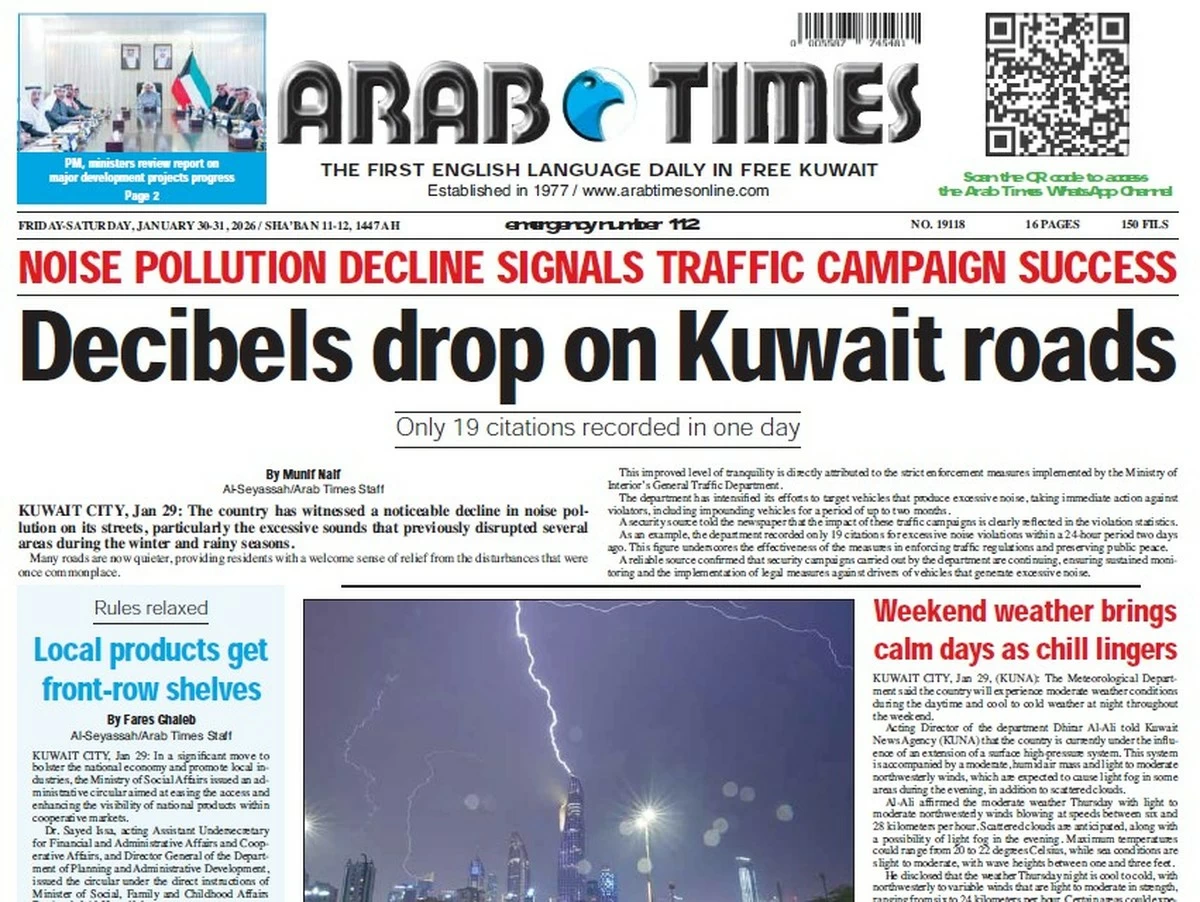27/11/2025
27/11/2025

KUWAIT CITY, Nov 27: Kuwait is taking a leading role in addressing global plastic pollution through its partnership with the International Atomic Energy Agency (IAEA), the Director General of the Kuwait Institute for Scientific Research (KISR), Dr. Faisal Al-Hamidan, said Thursday.
Speaking after leading the Kuwaiti delegation at the High-Level International Forum on Nuclear Technologies for Controlling Plastic Pollution in Manila, Philippines, on November 25-26, Dr. Al-Hamidan highlighted KISR’s commitment to global environmental challenges. He said the institute is at the forefront of research initiatives and has established international standards to monitor microplastic pollution in oceans, soil, and air.
“Through pioneering projects and strategic collaborations, KISR scientists have developed unified protocols with the IAEA, now adopted in more than 75 countries, to measure and mitigate microplastics,” Dr. Al-Hamidan said, emphasizing Kuwait’s key role in the IAEA’s NUTEC Plastics initiative.
He noted that KISR produced certified reference materials shared with the IAEA for global laboratory validation, supporting inter-laboratory comparisons across 55 countries. This effort enhances the accuracy of measurements that inform international policy decisions on plastic pollution.
Dr. Al-Hamidan said KISR’s contributions extend beyond national environmental protection and food security, aligning with the United Nations Sustainable Development Goals. He added that the institute’s microplastic detection and quantification protocols are now used widely across the Asia-Pacific region and beyond.
Highlighting KISR’s research impact, he said the institute has published more than 26 major papers in leading international journals over the past five years, widely cited by the scientific community and reinforcing Kuwait’s reputation as a center of excellence in microplastics research.
He also praised the support of Kuwait’s Ministry of Foreign Affairs, the Permanent Mission to the UN in Vienna, and Kuwait’s Embassy in the Philippines, led by Ambassador Mishari Al-Nibari, for their coordination and backing of the Kuwaiti delegation.
Dr. Al-Hamidan stressed that KISR’s role goes beyond participation, positioning the institute as a key partner and collaborating center within the IAEA framework. One of the institute’s notable achievements is the development of standard reference materials shared with the International Agency for the Validation of Laboratory Results (IARC), used in comparative analyses of laboratories in 55 countries to improve the reliability of global measurements.
“Our work has moved from local monitoring to setting global standards,” he said, noting that KISR protocols are now widely adopted for identifying and measuring microplastics across the Asia-Pacific region.
He reiterated that Kuwait’s efforts, through KISR, contribute significantly to global environmental initiatives and underscore the country’s standing in scientific innovation.


